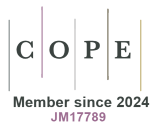Most read articles by the same author(s)
- Andrea Messori, Maria Rita Romeo, Valeria Fadda, Francesca Collini, Sabrina Trippoli, Costs and benefits in patients with NYHA class III heart failure treated with CardioMEMS in Italy , Global and Regional Health Technology Assessment: Vol. 11 No. 1: January-December 2024
- Massimo Allegri, Carlo Lucioni, Silvio Mazzi, Giulio Serra, Social cost of chronic pain in Italy , Global and Regional Health Technology Assessment: Vol. 2 No. 1 (2015): January-April 2015
- Carlo Lucioni, Sergio Iannazzo, Silvio Mazzi, Giorgia Saporiti, Silvia Chiroli, Cost-effectiveness of ponatinib in chronic myeloid leukemia in Italy , Global and Regional Health Technology Assessment: Vol. 2 No. 1 (2015): January-April 2015
- Carlo Lucioni, Silvio Mazzi, Elisa Rossi, Rita Rielli, Silvia Calabria, Aldo Pietro Maggioni, Therapeutic Strategies and Health Costs of Patients Admitted for a Cardiovascular Event in Italy , Global and Regional Health Technology Assessment: Vol. 3 No. 2 (2016): May-August 2016
- Clement Tournier, Valerie Deroo, Sara Villa, Giovanni Giuliani, Carlo Lucioni, Silvio Mazzi, Roberto Ravasio, An Approach to Evaluate Payment-by-Results Agreements , Global and Regional Health Technology Assessment: Vol. 3 No. 2 (2016): May-August 2016
- Nicoletta Martone, Carlo Lucioni, Silvio Mazzi, Valeria Fadda, Cost-Effectiveness Evaluation of Oncological Drugs Newly Marketed in Italy , Global and Regional Health Technology Assessment: Vol. 1 No. 2 (2014): July-December 2014
- Carlo Lucioni, Claudio Jommi, Value of health technologies, HTA and decisions , Global and Regional Health Technology Assessment: Vol. 4 No. 1 (2017): January-December 2017
- Carlo Lucioni, Silvio Mazzi, Roberto Caporali, Budget impact analysis of infliximab biosimilar: the Italian scenery , Global and Regional Health Technology Assessment: Vol. 2 No. 2 (2015): May-August 2015
- Roberto Gasparini, Daniela Amicizia, Piero Luigi Lai, Carlo Lucioni, Donatella Panatto, Health Technology Assessment and vaccinations in Italy , Global and Regional Health Technology Assessment: Vol. 1 No. 1 (2014): January-June 2014
- Silvia Adami, Alfredo Alberti, Margherita Andretta, Giuliano Buzzetti, Enzo Bonora, Nicola Braggio, Maurizio Cancian, Ercole Concia, Pierfranco Conte, Michele De Boni, Valeria Fadda, Annalisa Ferrarese, Bruno Giometto, Roberto Leone, Vittorio Pengo, Paolo Pertile, Leonardo Punzi, Mauro Saugo, Giovanna Scroccaro, Andrea Vianello, Therapeutic Value and Innovation of a Drug and Criteria for Evaluation: A Multidisciplinary Experience in the Veneto Region , Global and Regional Health Technology Assessment: Vol. 2 No. 2 (2015): May-August 2015









